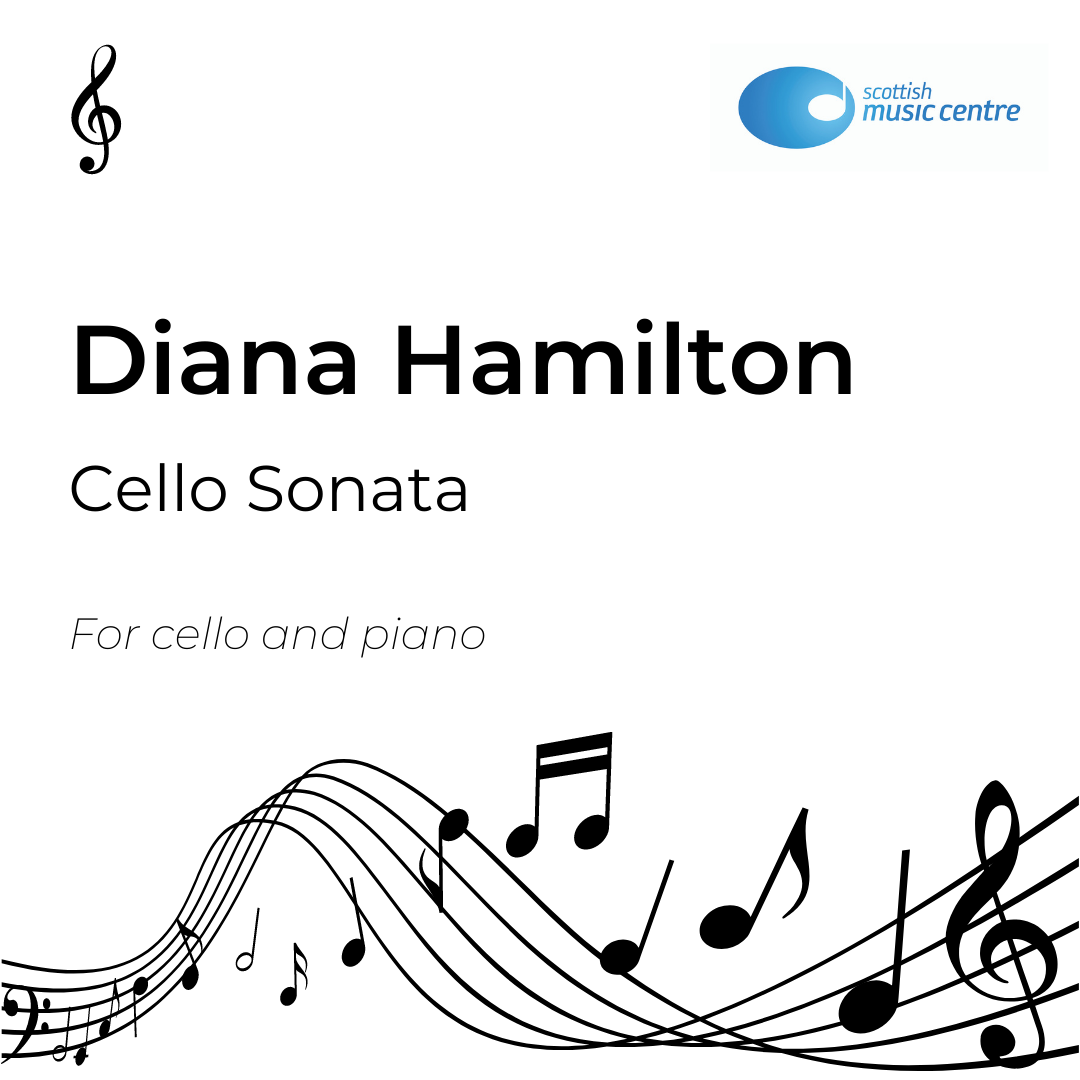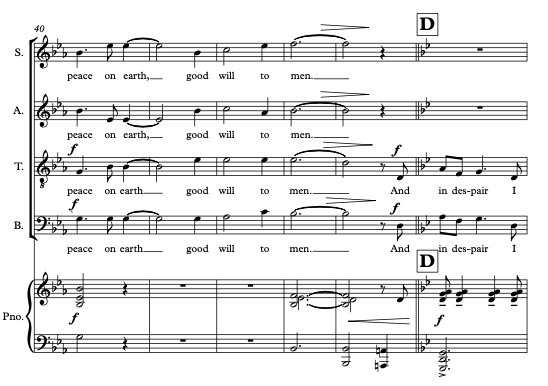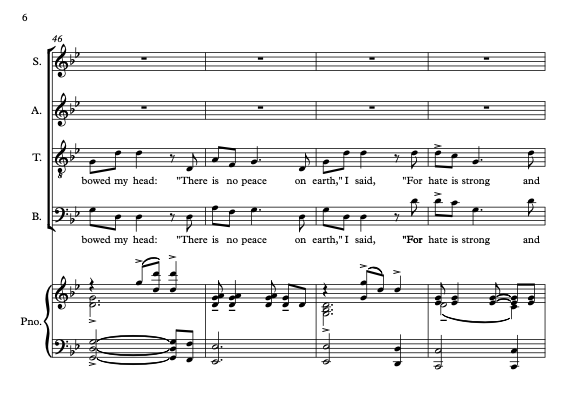Diana Hamilton: Cello Sonata [download]
Work for cello and piano, composed 2017. Computer typeset score (26pp) and part (8pp) saved as PDF for immediate download.
Work for cello and piano, composed 2017. Computer typeset score (26pp) and part (8pp) saved as PDF for immediate download.
Work for cello and piano, composed 2017. Computer typeset score (26pp) and part (8pp) saved as PDF for immediate download.
A chance encounter caused me to consider composing a cello sonata, when I met a couple whose son is studying cello at the Menuhin School in London. When his mother said to me “You’ll just have to write a cello sonata for Eddie” I’m not sure she expected I would do it, but it made me wonder why I hadn’t already done this, for the two instruments I love most – cello and piano, and considering, also that I have two nephews who are good cellists. I am very grateful to Sarah and Stephen, not only for playing it today, but also for spending a day, last year, coming to Arran to record it for me.
Musically, the inspiration for this lies in a period of music in which I feel very ‘at home’ – that of the early 20th century, when traditional structures and harmonic progressions were combined with what I call slightly ‘spiced-up’ harmonies.
Therefore, in the 1st movement of my sonata you’ll hear sonata form, with its 2 main themes, a development and recapitulation, grounded in tonality, but throughout the 3 movements there are harmonies and discords which belong to 20th century music.
The 2nd movement Andante originates from some incidental music I composed for a play by the Scottish playwright, Robert McLellan, who lived much of his life on Arran. The context of this music, in the play, was a description of the warm glow of sunset. All that was required, for the play, however, was about 1 minute of music, so this was an opportunity to development the ideas I’d had.
The 3rd movement develops a motif from the main theme of the second, but disguised in an irregular Latin style. It has to be admitted that I have a great fondness, not only for irregular and changing time signatures, but also for the music of Piazzolla. Towards the end, the main idea from the 1st movement appears, bringing, hopefully, some unity to the different styles of the 3 movements.




![Diana Hamilton: Christmas Bells [download]](https://images.squarespace-cdn.com/content/v1/5f3690f6995b741710ab4824/1702299853135-K9G0NZO9T30NG9KCDABG/Diana+Hamilton+Christmas+Bells+.jpg)




